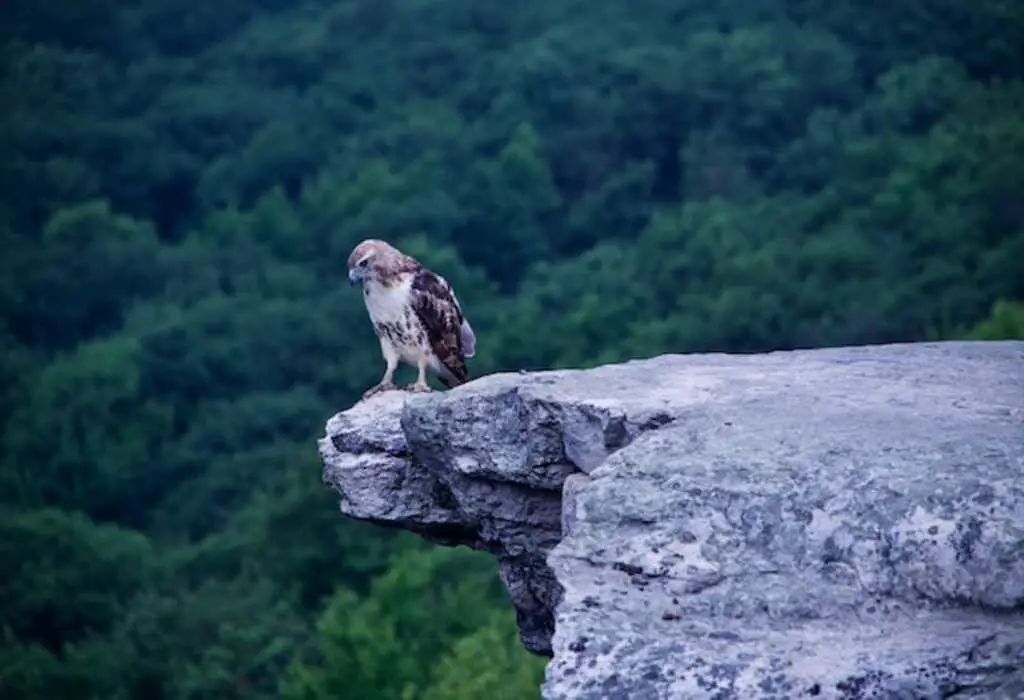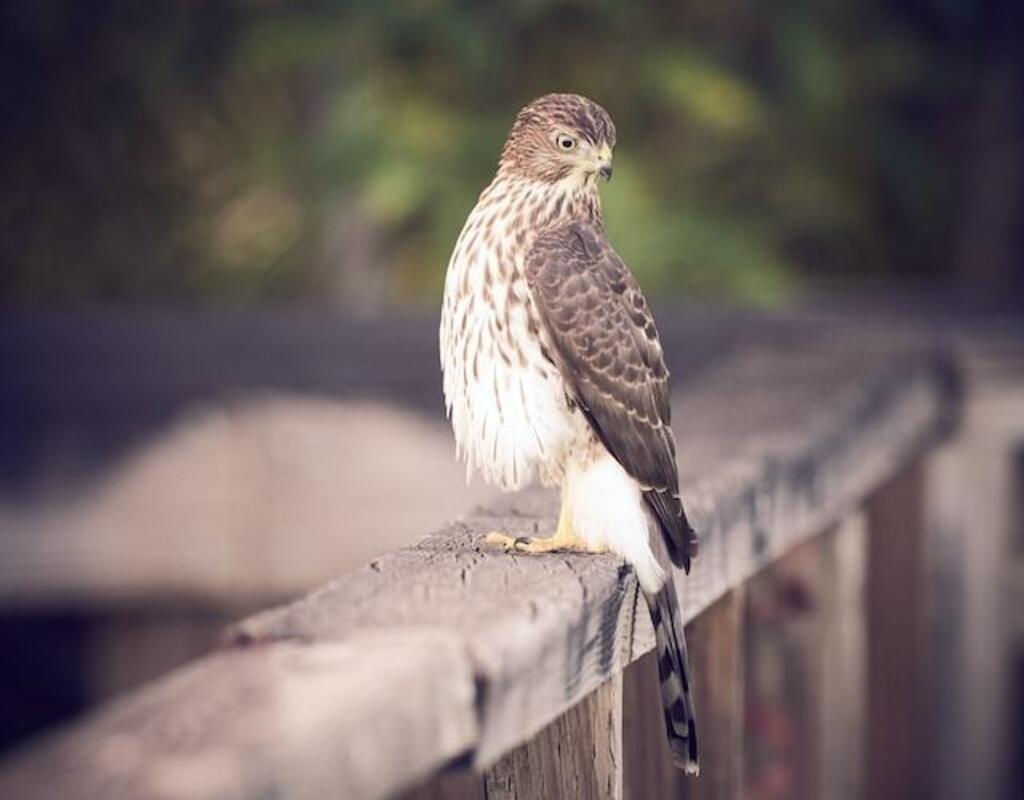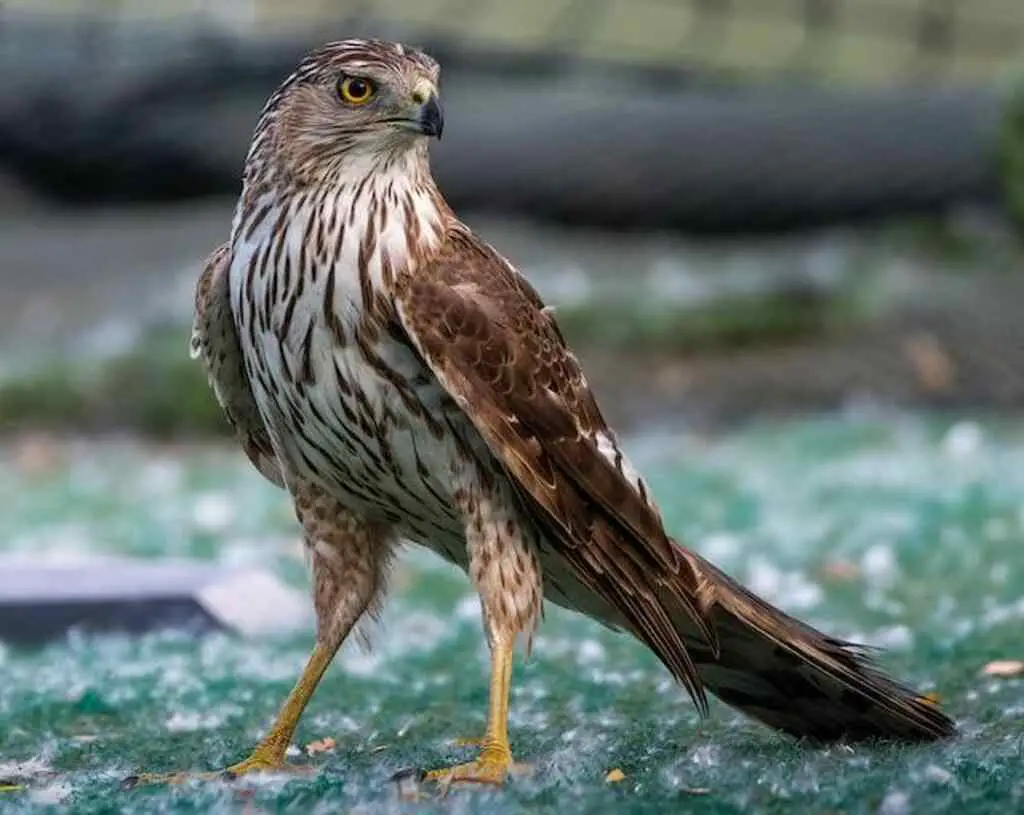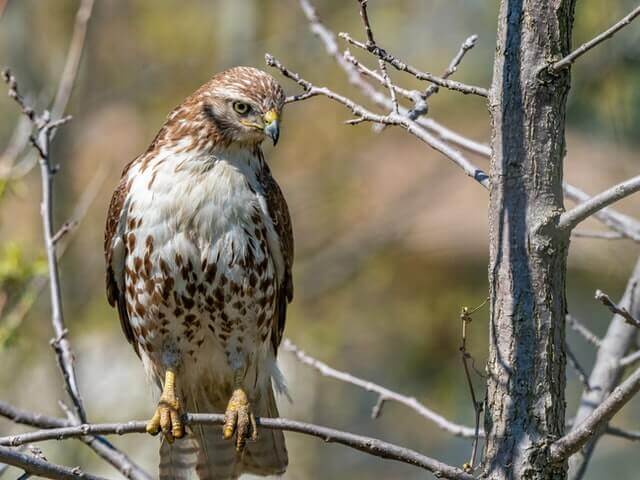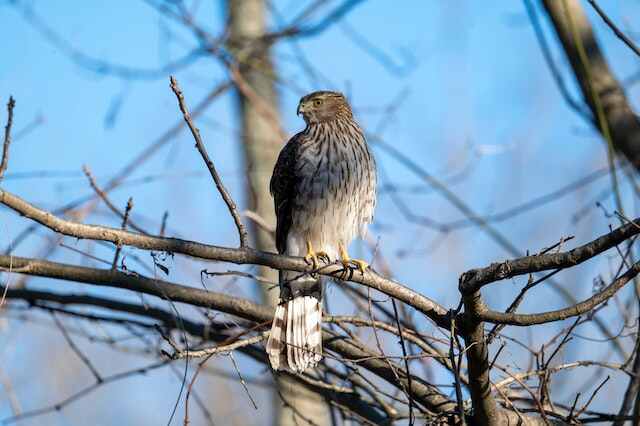Do Hawks Eat Bees? Buzzing with curiosity, we embark on a feathered adventure to uncover the truth behind this peculiar predator-prey relationship.
While the answer may surprise you, we’ll dive into the quirks of hawks and the elusiveness of bees to unveil the secrets of their dining habits.
Get ready to soar through a captivating tale of beaks, stingers, and the unexpected dance between these unlikely foes.
Table of Contents
- 1 The Basics of Hawks and Their Diet
- 2 Question: Do Hawks Eat Bees?
- 3 The Implications
- 4 Description of Hawks as Birds of Prey
- 5 Overview of Their Typical Diet (Rodents, Small Mammals, Birds, Reptiles, etc.)
- 6 Bees as Prey for Hawks
- 7 Why Hawks May Not Eat Bees
- 8 Exceptions to the Rule
- 9 Conclusion
- 10 FAQs: Do Hawks eat Bees?
- 10.1 Are hawks attracted to bees?
- 10.2 Do hawks eat honeybees?
- 10.3 Are bees a significant part of a hawk’s diet?
- 10.4 Why don’t hawks eat bees more often?
- 10.5 Can hawks catch bees in flight?
- 10.6 Do hawks ever eat bees as a supplemental food source?
- 10.7 Are there any exceptions where hawks eat bees?
- 10.8 What are the risks for hawks if they eat bees?
- 10.9 Are there any benefits to hawks eating bees?
- 10.10 Why is the topic of hawks eating bees significant?
- 11 Author
The Basics of Hawks and Their Diet
Hawks are birds of prey that belong to the family Accipitridae, which includes eagles, kites, and harriers. These majestic birds are known for their keen eyesight and impressive hunting skills.
They typically hunt during the day, soaring high in the sky before swooping down to catch their prey in their talons.
Hawks are carnivores, and their diet usually consists of small rodents, mammals, reptiles, insects, and birds.
One interesting fact about hawks is that they have a sharp, hooked beak designed for tearing flesh apart.
It is also worth noting that they do not have teeth; therefore they swallow their prey entirely.
They have a unique digestive system adapted to digesting bones and fur or feathers through a process known as casting.
Question: Do Hawks Eat Bees?
The answer is not straightforward as it varies depending on several factors. First off, bees are significantly smaller than most of the animals hawks typically hunt; thus hawks do not see them as worthy targets in most cases.
Furthermore, bees can fly quickly and erratically, making them challenging to capture mid-air.
However, some species of hawks may occasionally eat bees if there are no other food sources available or if they need extra nourishment during mating season or while raising young ones.
Additionally, some species may be more inclined to hunt bees based on environmental factors, such as the presence of an abundant bee population in a particular region.
It is also essential to note that there has been little research on this topic due to how rare it is for hawks to target bees as prey compared to other animals.
The Implications
The question of whether hawks eat bees may seem insignificant at first glance; however, exploring this topic gives us insight into the intricate balance of nature.
Every creature, from the smallest bee to the largest hawk, has a vital role to play in their ecosystem, and changes in any one of those roles can have cascading effects on the entire system.
Understanding how different species interact with one another can help researchers learn more about these ecosystems and potentially develop conservation efforts to protect them.
Moreover, it is fascinating to consider that even though hawks generally do not eat bees, there are still some exceptions to this rule.
This highlights the complexity of nature and reminds us that there is always more for us to learn about our environment and its inhabitants.
Description of Hawks as Birds of Prey
Hawks are a type of bird called raptors, which means “to seize or take by force.” They are known for their sharp talons, hooked beaks, and excellent vision. These features make them highly skilled hunters that can take down prey much larger than themselves.
There are over 200 species of hawks worldwide, ranging in size from the tiny sparrowhawk to the massive harpy eagle. Most hawks are diurnal, meaning they hunt during the day.
They use their keen eyesight to scan for prey while flying high in the sky or perched on a high vantage point. One unique feature of hawks is their ability to hover in place while searching for food.
This allows them to spot prey hidden in grasses or bushes and pounce when the time is right.
Hawks are also known for their incredible speed and agility, which makes them difficult targets for other animals trying to defend themselves.
Overview of Their Typical Diet (Rodents, Small Mammals, Birds, Reptiles, etc.)
Hawks have a varied diet that includes many types of animals. Some species primarily eat rodents like mice and voles, while others focus on small mammals such as rabbits or squirrels.
Birds are also common prey items for most hawk species. Reptiles like snakes and lizards make up a smaller portion of some hawk’s diets, but still play an important role in their ecosystem as predator control.
Some larger hawks like the red-tailed hawk or ferruginous hawk may even eat other birds such as pheasants or grouse if they need more substantial meals due to lack of accessible small mammals at times.
It is interesting to note that different species of hawks may specialize in certain types of prey depending on where they live and what is available in their environment.
For example, hawks in urban areas may hunt pigeons or small rodents, while those in rural areas may go after snakes and rabbits.
The diet of a hawk is an integral part of their ecological role in maintaining balance as predators in the food chain.
Bees as Prey for Hawks
Discussion on whether or not hawks eat bees
Hawks are birds of prey that typically hunt and feed on rodents, small mammals, birds, and reptiles. While it is not unheard of for hawks to eat insects, the question remains: do hawks eat bees? The answer is not straightforward.
While there are a few species of hawk that have been known to target bees as prey, it is relatively rare for hawks to do so. One reason why hawks may not target bees as prey is their small size.
Bees are much smaller than the typical prey of a hawk, and as such would not provide much sustenance.
Additionally, bees have stingers which could pose a threat to the hawk if they were to attempt to catch one.
Explanation that it is rare for hawks to target bees as prey due to their small size and mobility
Another reason why hawks may not eat bees is their mobility. Bees are fast-flying insects that can be difficult for even the most agile predators to catch.
For a hawk with larger wingspan designed more for soaring than rapid maneuvering in tight spaces, catching a bee would require significant effort.
Furthermore, there are many other easier options available for hawks when it comes to finding food.
The energy required by a hawk in pursuing and catching multiple bees would be better spent hunting larger prey with greater nutritional value.
While some species of hawk may occasionally include bees in their diet under certain circumstances such as scarcity of other food sources or specific environmental conditions; overall it is highly uncommon for them to do so.
Why Hawks May Not Eat Bees
Description of the challenges in catching bees (fast flight, stingers)
While hawks are skilled hunters, they typically target prey that is larger and easier to catch than bees. One of the main challenges in catching bees is their fast flight. Most species of bee can fly up to 15 miles per hour, making them difficult for hawks to track and intercept.
Bees are also small and agile, able to quickly change direction and evade predators. Another obstacle in capturing bees is their stingers.
Unlike other small prey like mice or lizards, bees have a natural defense mechanism that can pose a threat to hawks.
A sting from a bee could potentially be fatal for a hawk, especially if it were stung multiple times.
In addition to these physical challenges, hawks may also have difficulty locating bee colonies or nests.
Unlike other prey that may leave tracks or scents that hawks can follow, finding a colony of bees requires specialized knowledge and senses beyond what most birds possess.
Explanation that there are easier prey options available for hawks
Given the difficulties involved in capturing bees as well as the potential risks involved with attacking them, it is not surprising that most hawks do not actively seek out this type of prey.
Instead, they tend to focus on larger animals such as rodents, rabbits, or birds which are easier targets.
Not only are these types of animals more accessible, but they also provide more substantial nourishment for the hawk.
For example, one rabbit could provide enough energy for a hawk to last several days, whereas many bees would need to be consumed just to equal one meal.
Furthermore, many types of birds tend to flock together in large numbers, which makes hunting them an attractive option for many species of hawk who need less strategy and planning when taking high numbers at once rather than hunting one animal at a time.
Overall, while hawks are capable of eating bees, the challenges involved in catching them and the availability of other easier prey means that it is less common for them to do so.
Exceptions to the Rule
Mention of some species of hawk that may occasionally eat bees
While it is uncommon for hawks to feed on bees, there are several species of hawk that have been known to include them in their diet.
One such example is the White-tailed Hawk (Geranoaetus albicaudatus), which is primarily found in South America.
This type of hawk will sometimes consume bees and wasps when their usual prey is scarce.
Similarly, the Crested Caracara (Caracara cheriway) has been observed eating bees in parts of its range in North and South America.
Another example of a hawk that occasionally eats bees is the Ferruginous Hawk (Buteo regalis), which inhabits open grasslands and deserts across North America.
While this bird’s primary prey consists of small mammals like ground squirrels and prairie dogs, it has been observed feeding on insects like grasshoppers as well as the occasional bee or wasp.
Discussion on how this behavior may be influenced by location or environmental factors
The consumption of bees by hawks may also be influenced by location and environmental factors.
For example, some studies have shown that hawks living in urban areas with less access to traditional prey may be more likely to eat insects like bees as a supplemental food source.
Additionally, some researchers believe that certain types of vegetation favored by hawks could be home to more bee populations than other areas.
This would increase the likelihood that hawks come into contact with these insects and potentially add them to their diet.
It’s important to note that while exceptions exist, bee consumption remains a rarity among most species of hawk.
These birds generally prefer larger prey items that provide more sustenance for their energy-intensive hunting lifestyle.
Overall, while exceptions do exist within certain species and environmental conditions, it’s still highly uncommon for hawks to eat bees on a regular basis.
These birds of prey are typically adapted to hunting larger prey items and have little interest in the relatively small and elusive insects.
Conclusion
Recap on the Rarity of Hawks Eating Bees
After discussing hawks and their diet, as well as bees as prey for hawks, it is clear that hawks do not often eat bees.
While there are some species of hawks that may occasionally snack on these insects, it is not a common occurrence. Hawks generally prefer larger prey that is easier to catch and provides more sustenance.
This rarity can be attributed to several factors. First, bees are small and quick, making them difficult to catch for a bird of prey like the hawk.
Second, they have stingers which can be dangerous to predators if they are not careful. There are plenty of other food options available in the hawk’s diet that require less effort and pose less risk.
Final Thoughts on the Interesting Relationship Between These Two Creatures
While it may seem like hawks and bees have little in common, they both play important roles in their respective ecosystems.
Hawks help control populations of rodents and other small mammals by preying upon them while bees pollinate plants and aid in their reproduction.
The relationship between these two creatures is interesting because it highlights the interconnectedness of all living things in nature.
While they may not interact directly with each other very often, their presence contributes to a balanced ecosystem where each organism has its own unique role to play.
While it may be rare for hawks to eat bees, their relationship highlights the importance of all creatures great and small in maintaining a healthy ecosystem.
By understanding how different organisms interact with one another, we can better appreciate the delicate balance of nature and work towards preserving it for future generations.
FAQs: Do Hawks eat Bees?
Are hawks attracted to bees?
Hawks are generally not attracted to bees as prey due to their small size and fast flight. Hawks typically prefer larger prey such as rodents, mammals, and birds.
Do hawks eat honeybees?
Honeybees are not a common food source for hawks. While some species of hawks may occasionally eat bees, it is rare and not a regular part of their diet.
Are bees a significant part of a hawk’s diet?
No, bees are not a significant part of a hawk’s diet. Hawks primarily feed on small mammals, rodents, birds, and reptiles.
Why don’t hawks eat bees more often?
Hawks do not often eat bees due to their small size, fast and erratic flight, and the presence of stingers, which can be a threat to the hawk. They have easier prey options available.
Can hawks catch bees in flight?
Catching bees in flight is challenging for hawks due to their small size and agile flying abilities. Hawks are better adapted for hunting larger prey that provides more sustenance.
Do hawks ever eat bees as a supplemental food source?
Some species of hawks may occasionally include bees in their diet if other food sources are scarce or based on specific environmental conditions. However, it remains uncommon overall.
Are there any exceptions where hawks eat bees?
While rare, there are a few exceptions where certain species of hawks have been observed eating bees. Examples include the White-tailed Hawk, Crested Caracara, and Ferruginous Hawk, but it is not a widespread behavior.
What are the risks for hawks if they eat bees?
Bees possess stingers that can pose a threat to hawks if they are stung. Multiple stings could potentially be fatal for a hawk, which is why they tend to avoid targeting bees as prey.
Are there any benefits to hawks eating bees?
Hawks do not derive significant benefits from eating bees. Their diet primarily consists of larger prey items that offer more substantial nourishment and energy for their hunting lifestyle.
Why is the topic of hawks eating bees significant?
While it is not a common occurrence, exploring the interaction between hawks and bees provides insights into the delicate balance of nature and the intricate relationships between different species within ecosystems.

